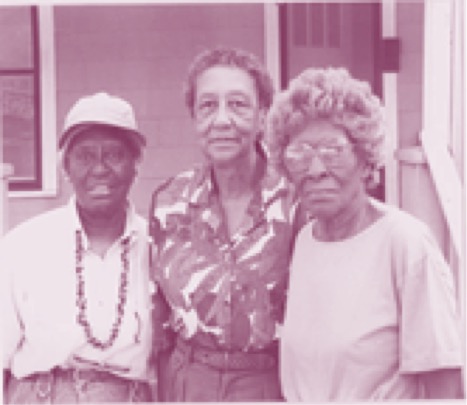Impacting hunger in Bastrop County
Rural Southern communities experience hunger at a much higher rate than their urban counterparts. The state of Texas’ rate in particular is statistically higher than the national average. Rural families experience hunger at a higher rate due to the challenges associated with living remotely: lack of transportation and access to healthy foods. This forces families to shop at convenience stores which carry little to no produce. The financial gap, limited access to fresh produce, and lack of resources leads to hunger; poor nutrition; increased risk of chronic disease like diabetes; poorer mental health; and behavioral and academic barriers in children (Feeding Texas Hunger Atlas 2014).
The Bastrop County Emergency Food Pantry and Support Center strives to eliminate food insecurity in Bastrop County where 10,535 people endure hunger daily (Map the Meal Gap, Feeding America 2016). Low-income Bastrop residents experience a 22% gap between what they can afford and what they need. The Pantry acts as the first and sometimes only line of defense against food insecurity for the community. In a given year the Pantry serves 2,000 individuals with Emergency Food Assistance. The majority of clients, 66%, need only a one time emergency assistance, while the remainder needs assistance two or more times.
The Emergency Food Assistance program provides a holistic approach to helping families experiencing natural disasters; the loss of a home, family member, or employment; a major health set-back; and other life changing events. It’s a unique program in that it provides the households seeking assistance with emergency food more frequently and in larger quantities than traditional pantries. The Pantry believes in providing families with enough nutritious food that will help them in their time of need versus using a model that gives enough food for a few days, and then people leave with the fear of running out in a few days. Families can receive 45 days of food for 45 days as well as weekly monthly access to fresh foods. The Pantry staff then work with them to apply for assistance and match them with other local resources to help them overcome their temporary setback. Since its inception, the Food Pantry has become a multi-service agency, committed to providing comprehensive services to those in need.
The Food Pantry served 3,574 clients received 334,774 pounds of food (401,728 meals) in 2019. They also provided information and referral to 333 individuals, senior activities to 70 seniors, out-of-school time food for 142 school aged children, and 30 individuals received emergency utility assistance to prevent shut-offs.
Our History
“Never doubt that a small group of thoughtful, committed citizens can change the world. Indeed, it is the only thing that ever has.”— Margaret Mead
In 1987, the Food Pantry formed as a 501(c)(3) non-profit organization in response to the emergency food needs of Bastrop County residents. The Food Pantry celebrates its proud as a “Hunger Buster” food support center that responds immediately to individuals and families in a food crisis with a “no-wait, no red-tape” attitude.
It moved from its original location at 1002 Jefferson Street, to its current location at 1201 Pine Street in historic downtown Bastrop in May 1990. In August of that year, the Food Pantry inaugurated its Brown Bag program. In response to the growing needs of the community the Food Pantry opened the Jewell Hodges Support Center on March 3, 1995. The year 2001 ushered in a wave of changes at the Food Pantry. Mrs. Jewell Hodges, a Food Pantry founder who had faithfully served as the Food Pantry’s CEO since the beginning retired; in May 2002, Tresha Sanders-Silva, former prevention education coordinator for the Family Crisis Center, was named as Executive Director. Through her leadership, the Food Pantry continues to uphold its commitment to the community to supply emergency food while providing vital high-quality services to the families and individuals served by the Pantry. Continuing growth—in the numbers needing Food Pantry services and in the range of services promoted the addition of warehouse and office facilities at 806 Fayette Street in 2011. The Fayette Street site serves as the intake center for clients as well.
The Food Pantry’s Board of Directors (consisting of 5-15 individuals) from the community and an Advisory Council made up of 51 percent low-income residents of Bastrop create the policies for the Food Pantry, which has now grown to become a multi-service agency—committed to providing vital client services, in addition to food. They go beyond food distribution to include services which includes: counseling, advocacy, resource management education and referrals to other local agencies for additional support, such as job training. The Food Pantry runs a tight operation—primarily volunteer-driven with minimal paid staff.
 Jewell Hodges, Otha McDuff and Webbie Young, founders and former board members.
Jewell Hodges, Otha McDuff and Webbie Young, founders and former board members.